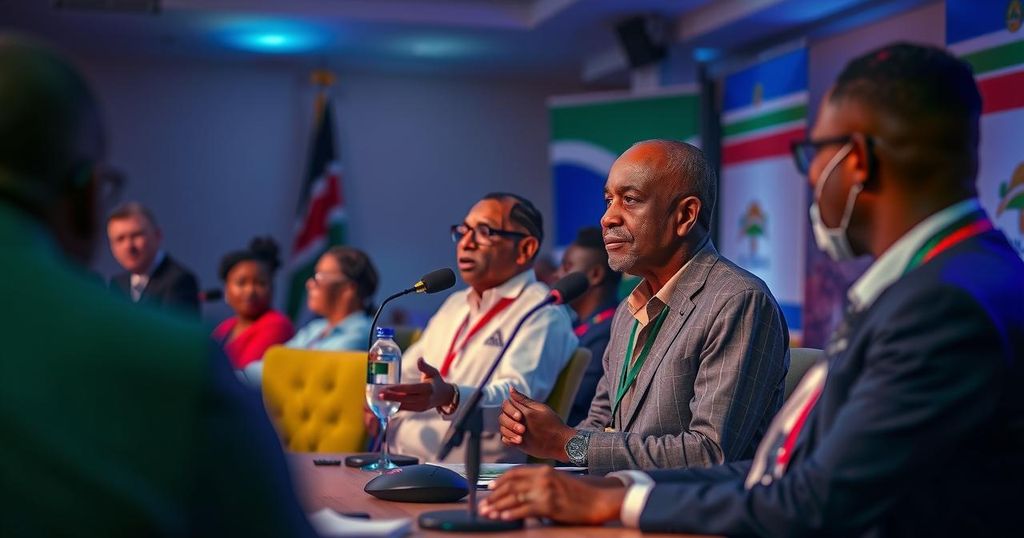Mauritius held parliamentary elections amidst a cost of living crisis, with Prime Minister Jugnauth and rival parties promising economic relief. Polling began at 7 a.m. local time, with significant voter engagement expected. The ruling coalition proposed minimum wage increases and tax reductions, while opposition parties offered pensions and free services. The election’s outcome will shape the future economic landscape of the nation.
On Sunday, Mauritius conducted its parliamentary elections amidst significant concerns over the rising cost of living faced by its citizens. Prime Minister Pravind Kumar Jugnauth and his opponents are fervently committed to addressing this pressing economic issue. Polls opened at 7 a.m. local time, with voter turnout measured as individuals checked their registration details prior to casting their ballots, which are scheduled to close at 2 p.m. GMT. The island nation, which boasts a population of approximately 1.3 million, serves as a strategic link between Africa and Asia, primarily benefiting from its robust offshore financial sector, tourism, and textile industries. Although the government projected a 6.5 percent economic growth rate this year, many citizens feel disconnected from these gains. Through its Alliance Lepep coalition, the government aims to implement initiatives, including raising minimum wages, enhancing pension benefits, and decreasing value-added tax on essential goods. This financial strategy also intends to capitalize on an agreement with the UK concerning the Chagos Islands, while maintaining control over the US-UK Diego Garcia military base. Additionally, Mauritius benefits from Chinese economic aid. Political analyst Subash Gobine commented, “The alliance led by the prime minister is selling the economic prosperity card, with promises of more money to different segments of the population.” On the opposition side, the Alliance du Changement coalition, led by Navin Ramgoolam, is proposing pension increases, free transport and internet services, and cuts to fuel prices. Voter sentiment indicates a desire for innovation, particularly among the youth, who, according to David Stafford, age 36, emphasized the importance of economic advancements and job opportunities, alongside fiscal policies. Electoral participation is anticipated to exceed one million voters, selecting representatives for the 62 parliamentary seats available from a pool of 68 different political entities and alliances. In a controversial move, the government recently restricted access to social media platforms, citing national security concerns following leaked communications among public figures, although the ban was lifted shortly thereafter in response to backlash from opposition groups. Ultimately, the party or coalition that secures a majority of seats will be entitled to appoint the next prime minister.
Mauritius is currently facing a cost of living crisis that has prompted significant political discourse and action as the nation held parliamentary elections. The economic situation is particularly critical given projected growth that does not appear to benefit the majority of the population. The elections feature promises from both the ruling and opposition parties to address these issues through various fiscal initiatives, reflecting the electorate’s demand for change. The outcome of this election will significantly influence the nation’s economic policies and governance for years to come.
The recent parliamentary elections in Mauritius provide a critical moment for the electorate to address the persistent cost of living challenges facing the nation. Both the ruling Alliance Lepep coalition and the opposition have laid out ambitious plans aimed at economic relief and growth. The outcome will not only determine the government structure but also the direction of Mauritius’s economic policies, particularly in relation to its youth demographics who are seeking innovative solutions for their future.
Original Source: www.arabnews.com







